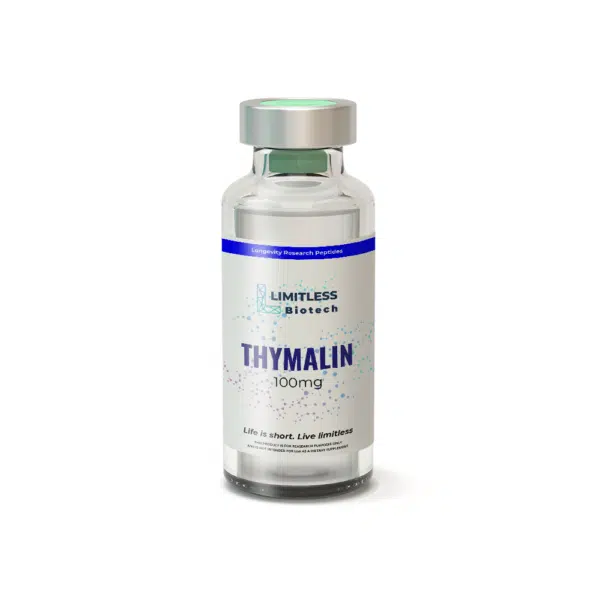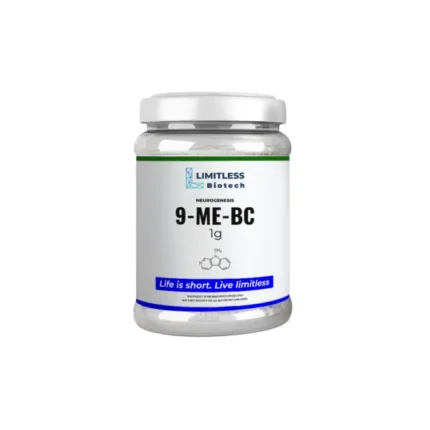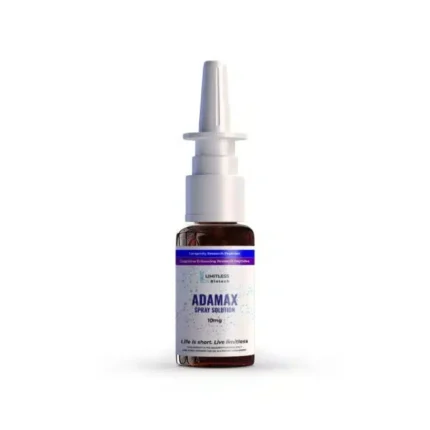Thymalin is a peptide derived from the thymus gland, widely studied for its immunomodulatory and geroprotective effects. Research spans from its molecular mechanisms to applications in immune dysfunction, aging, and adjunctive therapy for various diseases.
Thymalin and Immune System Research
Thymalin promotes the differentiation of hematopoietic stem cells into mature T lymphocytes, increasing CD28 and decreasing CD44 and CD117. Research indicates enhanced immune cell maturation mechanisms, particularly relevant in COVID-19 studies where T cell suppression has been observed[1].
The KE and EW dipeptides in Thymalin modulate gene expression and protein synthesis related to cytokine storm in COVID-19. These peptides reduce pro-inflammatory cytokines (IL-1β, IL-6, TNF-α) in immune cells, potentially downregulating excessive inflammation[2].
Research studies combining Thymalin with standard COVID-19 protocols demonstrate slowed decline of protective IgG antibodies and maintained adaptive immunity. Laboratory analysis shows normalized immune cell counts (CD4+, CD8+, NK cells) in severe cases, supporting immune status recovery[3].
Thymalin has shown research applications in acute respiratory syndrome, chronic bronchitis, trauma studies, and cancer research models, particularly in cellular immunity investigations[1][4][5].
Thymalin Research in Aging and Life Extension
Peptides derived from the thymus (such as Thymalin) and pineal gland (such as Epithalamin/Epitalon) have been studied for their potential to slow aging and extend lifespan.
Research studies demonstrate that Thymalin and Epithalamin normalize immune, endocrine, cardiovascular, and nervous system functions, supporting homeostasis and metabolism in elderly research subjects[6].
These peptides may act by activating transcription of proteins involved in tissue repair and immune function, especially in the thymus[7]. Both peptides show antioxidant properties and reduce tumor incidence in animal models[7][8].
The thymus and pineal gland interact through shared regulatory pathways, influencing immune, endocrine, and nervous system health. Their co-involution is linked to aging, and their hormones (including melatonin) play roles in longevity and disease prevention[9].
Cancer Research
Thymalin and related thymic peptides (such as thymosin alpha-1) stimulate T-cell-mediated immunity, increasing lymphoproliferative activity and enhancing both innate and adaptive immune responses. Research demonstrates enhanced anti-tumor immunity mechanisms and potential effects on tumor growth and progression in laboratory models[10].
In animal studies, Thymalin at low doses led to tumor growth arrest or regression, likely due to its effects on the thymus and immune system activation[11].
Clinical research studies have examined Thymalin as part of complex research protocols in cancer models, demonstrating pronounced immunomodulating effects and providing data on immunocorrection mechanisms when T-cell immunity is monitored[12].
Atherosclerosis Research
Research studies show Thymalin normalizes lymphocyte function, specifically restoring T-suppressor activity and improving immune cell sensitivity in animal models with high cholesterol, which may counteract immune dysfunction observed in atherosclerosis research[13].
Laboratory investigations demonstrate Thymalin’s hypolipidemic effects, showing reduced blood lipid levels in research models, a mechanism relevant to atherosclerosis studies[13].
References
- Khavinson, V., Linkova, N., Kvetnoy, I., Polyakova, V., Drobintseva, A., Kvetnaia, T., & Ivko, O. Thymalin: Activation of Differentiation of Human Hematopoietic Stem Cells. Bulletin of Experimental Biology and Medicine. 2020; 170. https://doi.org/10.1007/s10517-020-05016-z.
- Linkova, N., Khavinson, V., Diatlova, A., Petukhov, M., Vladimirova, E., Sukhareva, M., & Ilina, A. The Influence of KE and EW Dipeptides in the Composition of the Thymalin Drug on Gene Expression and Protein Synthesis Involved in the Pathogenesis of COVID-19. International Journal of Molecular Sciences. 2023; 24. https://doi.org/10.3390/ijms241713377.
- Khavinson, V., Kuznik, B., Volchkov, V., Rukavishnikova, S., Titova, O., Akhmedov, T., Trofimova, S., Ryzhak, G., Potyomkin, V., & Saginbaev, U. Effect of thymalin on adaptive immunity in complex therapy for patients with COVID-19. . 2021; 98. https://doi.org/10.30629/0023-2149-2020-98-8-593-599.
- Scientific, R., & Tillyashaikhov, M. STUDYING THE INDICATORS OF CELLULAR AND HUMORAL IMMUNITY IN PATIENTS WITH OVARY CANCER AGAINST THE BACKGROUND IMMUNOPHARMACOTHERAPY. Problems of modern science and education. 2019 https://doi.org/10.20861/2304-2338-2019-134-002.
- Dovnar, T., Mikhailova, N., & Khavinson, V. [Effect of thymalin on immunologic reactivity of patients with non-specific lung diseases].. Terapevticheskii arkhiv. 1989; 61 3.
- Khavinson, V., & Morozov, V. Peptides of pineal gland and thymus prolong human life.. Neuro endocrinology letters. 2003; 24 3-4.
- Khavinson, V. Peptides and Ageing.. Neuro endocrinology letters. 2002; 23 Suppl 3.
- Anisimov, V., Khavinson, V., & Vg, M. Twenty Years of Study on Effects of Pineal Peptide Preparation: Epithalamin in Experimental Gerontology and Oncology. Annals of the New York Academy of Sciences. 1994; 719. https://doi.org/10.1111/j.1749-6632.1994.tb56853.x.
- Rezzani, R., Franco, C., Hardeland, R., & Rodella, L. Thymus-Pineal Gland Axis: Revisiting Its Role in Human Life and Ageing. International Journal of Molecular Sciences. 2020; 21. https://doi.org/10.3390/ijms21228806.
- Savino, W., & Lepletier, A. Thymus-derived hormonal and cellular control of cancer. Frontiers in Endocrinology. 2023; 14. https://doi.org/10.3389/fendo.2023.1168186.
- Zhukova, G., Schikhlyarova, A., Barteneva, T., Shevchenko, A., & Zakharyuta, F. Effect of Thymalin on the Tumor and Thymus under Conditions of Activation Therapy In Vivo. Bulletin of Experimental Biology and Medicine. 2018; 165. https://doi.org/10.1007/s10517-018-4104-z.
- Ev, B., IaV, B., VKh, K., & Vg, M. Use of thymalin in the complex treatment of patients with cancer of the uterus. . 1985
- Ryzhenkov, V., Ogurtsov, R., Trubacheva, V., Popov, V., & Puzyreva, V. [Effect of thymalin on the development of experimental hyperlipidemia and atherosclerosis].. Voprosy meditsinskoi khimii. 1988; 34 1.























Reviews
There are no reviews yet.